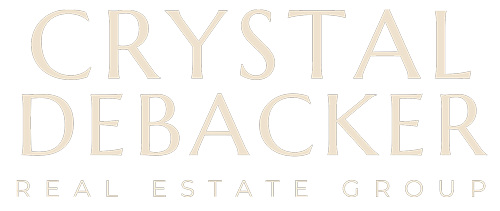The Temptation of the First Offer
You’ve finally found the one—your dream home. Your heart’s racing, your brain is buzzing, and then your lender emails you a mortgage offer. It looks legit, sounds official, and feels like the next logical step. So you say “yes,” right?
Not so fast.
Accepting the first mortgage offer might seem like an easy win, but it could end up costing you thousands—yes, thousands—over the life of your loan. Let’s talk about why.
What Is a Mortgage Offer?
Before we dive into why you shouldn’t jump on the first offer, let’s get clear on what it actually is.
Pre-Approval vs. Mortgage Offer
Pre-approval is an estimate. It’s like a “maybe” from your lender.
A mortgage offer is a formal “yes.” It’s what you get after choosing a home, submitting all your paperwork, and going through underwriting. It lays out the amount, rate, terms, and fine print.
What Lenders Include in an Offer
A typical mortgage offer spells out:
- The loan amount
- Interest rate
- Loan term (e.g., 15 or 30 years)
- Closing costs and fees
- Points (prepaid interest)
- Conditions and contingencies
It looks like a neat little package. But what’s inside could vary wildly from lender to lender.
The Danger of Accepting the First Mortgage Offer
You Could Be Leaving Thousands on the Table
Let’s say your lender offers a 6.5% interest rate. Another lender might offer you 6.2%. That 0.3% might not sound like a big deal, but over 30 years, it could save you $15,000 to $25,000 or more depending on your loan size.
The Terms May Not Be in Your Favor
That first offer might include a prepayment penalty (ugh), excessive lender fees, or less-than-ideal conditions. Why? Because lenders are counting on you being too busy—or too overwhelmed—to compare.
Hidden Fees and Charges Are Common
Origination fees, document prep fees, underwriting fees… some lenders are sneaky. You could be paying $3,000 in hidden costs with one lender when another would charge just $900. That’s a $2,100 difference—just for picking the wrong one.
Why Mortgage Offers Vary Between Lenders
Different Lender Policies and Risk Assessments
Not all lenders view your application the same way. One might see your credit profile as stellar, while another views it as average.
Credit Score Interpretation Can Differ
Some use FICO 2. Others use FICO 8. Some weigh your debt-to-income ratio more heavily. Those tiny differences can change your rate.
Lenders Compete for Your Business
Believe it or not, even in today’s competitive market, lenders are fighting to win your loan. Use that to your advantage.
The Power of Comparison Shopping
Interest Rate Differences Add Up
Over time, small interest rate changes make a huge difference.
For example:
- $350,000 loan at 6.5% = ~$2,212/month
- $350,000 loan at 6.2% = ~$2,146/month
That’s $66/month. Over 30 years? $23,760.
How to Properly Compare Offers
Key Points: APR, Loan Term, Points, and Fees
- APR gives you a better apples-to-apples comparison than the raw interest rate.
- Points may reduce your rate but cost you more upfront.
- Fees and loan term also affect your total cost.
Don’t Just Look at the Monthly Payment
A lower payment doesn’t always mean a better deal. Sometimes it just means more interest paid over time.
Negotiating a Better Deal
Yes, You Can Negotiate Your Mortgage Terms
Lenders aren’t set in stone. You can push back on:
- Interest rates
- Closing costs
- Origination fees
- Points
How to Use Competing Offers as Leverage
Got another offer with better terms? Great. Show it to your preferred lender and ask, “Can you beat this?”
Chances are, they’ll at least match it—or offer you something better.
Tips for Smart Mortgage Shopping
Get Quotes from at Least 3–5 Lenders
Don’t stop at your bank or the lender your realtor recommends. Shop around—credit unions, online lenders, and big-name banks. Each one will have different terms.
Use a Mortgage Broker (Carefully)
Brokers can help you shop, but ask how they’re paid. If they earn more for steering you toward certain lenders, that might not be in your best interest.
Read the Fine Print—Always
The loan estimate is your best friend. Read it line by line. Question every fee. Don’t assume anything.
Common Myths About Mortgage Offers
“The First Offer is the Best I’ll Get”
Nope. It’s usually just the first—not the best. Lenders know many borrowers are too stressed or busy to shop. Don’t fall into that trap.
“All Lenders Offer the Same Rates”
Not even close. Lenders adjust rates daily. Some mark them up more than others. Always verify with multiple sources.
Real-Life Case Study: How Shopping Saved One Family $18,000
A couple moving to Van Alstyne received a 6.4% mortgage offer from their local bank. Out of curiosity, they got quotes from two credit unions and one online lender.
- One lender offered 6.2% with lower fees.
- Another offered 6.1% with zero points.
They went with the 6.1% offer—and saved over $18,000 in interest over the life of the loan. Just by shopping around for two extra days.
Final Thoughts: Why Patience Pays Off
Buying a home is an emotional rollercoaster—but your mortgage shouldn’t be.
The first offer is rarely the best. You have options. You have leverage. And you owe it to yourself to use both.
Comparison shopping isn’t just smart—it’s financially essential.
Take a few extra days, talk to multiple lenders, and don’t be afraid to negotiate. Your future self (and your wallet) will thank you.
FAQs
Q1: Will shopping for multiple mortgage offers hurt my credit?
Not if you shop within a 45-day window. Credit bureaus count all inquiries for the same loan type as one.
Q2: How long do mortgage offers stay valid?
Usually between 30–60 days, depending on the lender. Always double-check the expiration date.
Q3: Is the lowest interest rate always the best deal?
Not always. You have to factor in fees, points, and APR to see the full picture.
Q4: Can I switch lenders after I’m pre-approved?
Yes! Pre-approval is non-binding. You can change lenders anytime before closing.
Q5: What if I feel pressured to accept the first offer?
Walk away—or hit pause. Pressure is a red flag. You deserve a lender who respects your decision-making process.





